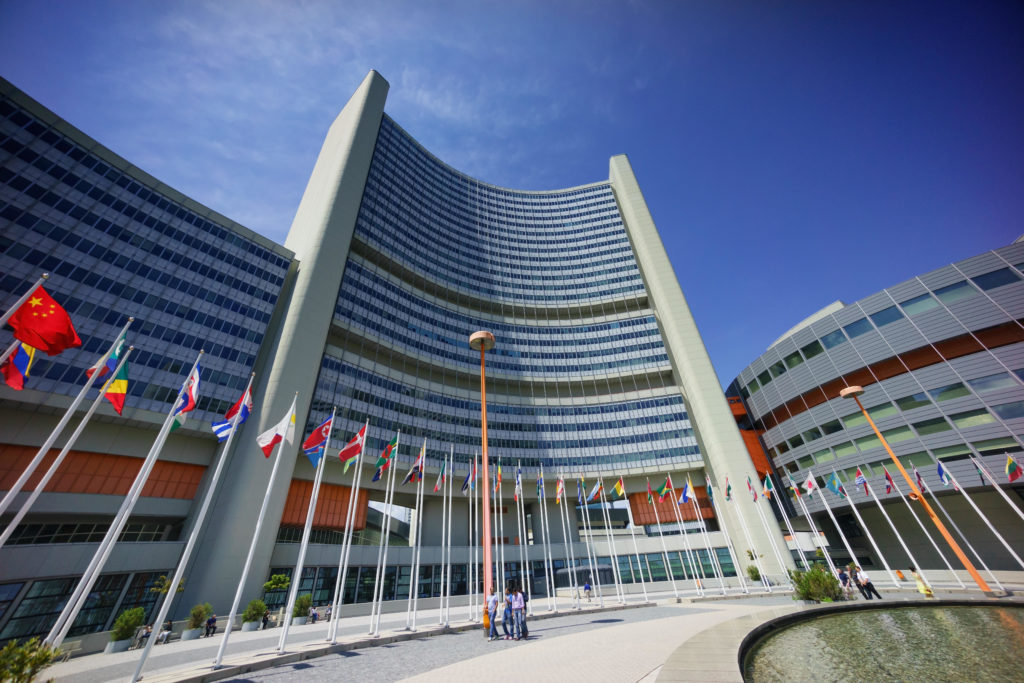TASHKENT
Uzbekistan has made substantive progress in the development of its nuclear power plant project, though it still needs to join a number of international nuclear safety instruments, the International Atomic Energy Agency (IAEA) said following its mission to the Central Asian country.
An IAEA team of experts concluded a 12-day mission to Uzbekistan to review the development of its infrastructure for a nuclear power program. Their Integrated Nuclear Infrastructure Review (INIR) was carried out at the invitation of Uzbekistan’s government, IAEA said in a statement.
Uzbekistan and Russia signed an intergovernmental agreement on cooperation in the use of nuclear energy for peaceful purposes in 2017. A further agreement was signed in 2018 for the construction of two Rosatom VVER-1200 reactors to be commissioned in 2028 and 2030, respectively.
Uzbekistan initiated the process to select a site for its first nuclear power plant in 2019.
Central Asia’s most populous nation, with its population of 35 million, Uzbekistan is a major global uranium supplier and is turning to nuclear power as a low carbon energy source that can help reduce its greenhouse gas emissions and boost electricity generating capacity.
“Uzbekistan has made substantive progress in the development of its nuclear power infrastructure,” Milko Kovachev, the IAEA’s Nuclear Infrastructure Development Section head, said.
“It is essential that the government remains well-focused in further advancing the necessary legal and institutional framework,” he added.
The agency’s mission reviewed the status of nuclear infrastructure development using the Phase 2 criteria of the IAEA’s Milestones Approach, which provides detailed guidance across three phases (consider, prepare, construct) of development.
Uzbekistan’s nuclear power programme benefits from strong governmental support and shows a clear commitment to safety, security and non-proliferation, the mission said, adding that the country has made significant progress in NPP project development and has taken steps to enhance its legal and regulatory framework as well as to strengthen the regulatory body.
The IAEA’s mission team highlighted areas where further actions would benefit Uzbekistan, including the need to adhere to international legal instruments to which it is not yet a party, such as the Convention on Nuclear Safety, the Convention on Early Notification of a Nuclear Accident and the Vienna Convention on Civil Liability for Nuclear Damage and its Protocol.
Uzbekistan’s government should ensure a consistent and complete national legal framework for nuclear safety and nuclear security by consolidating and strengthening legislation. Uzbekistan also needs to ensure adequate human and financial resources for the nuclear regulatory body, it said.
According to the mission’s statement, while the country has made significant progress in NPP project development, work remains to be completed on project related studies, environmental assessment procedures, stakeholder engagement activities and construction management capabilities.
The team also identified good practices that would benefit other countries developing nuclear power in the areas of human resources, finance, and nuclear security.
“Developing the infrastructure required for a safe and sustainable nuclear power program requires time and effort. Uzbekistan already has the considerable nuclear-related experience, gained through its research reactors and other nuclear research facilities and its progress towards nuclear power is commendable,” Mikhail Chudakov, IAEA Deputy Director General and Head of the Department of Nuclear Energy, said.
Uzbekistan’s national atomic energy agency Uzatom said that the results of the integrated nuclear infrastructure review mission will help Uzbekistan’s government to ensure the safe development of a national nuclear program.
“The outcome of the mission will also help us develop an action plan which in turn will contribute to the development of the national nuclear infrastructure. By receiving the INIR mission, Uzbekistan demonstrated its complete openness and interest in obtaining an objective professional assessment of the readiness of its nuclear infrastructure,” Jurabek Mirzamakhmudov, the Director-General of the Uzatom Agency, said.

